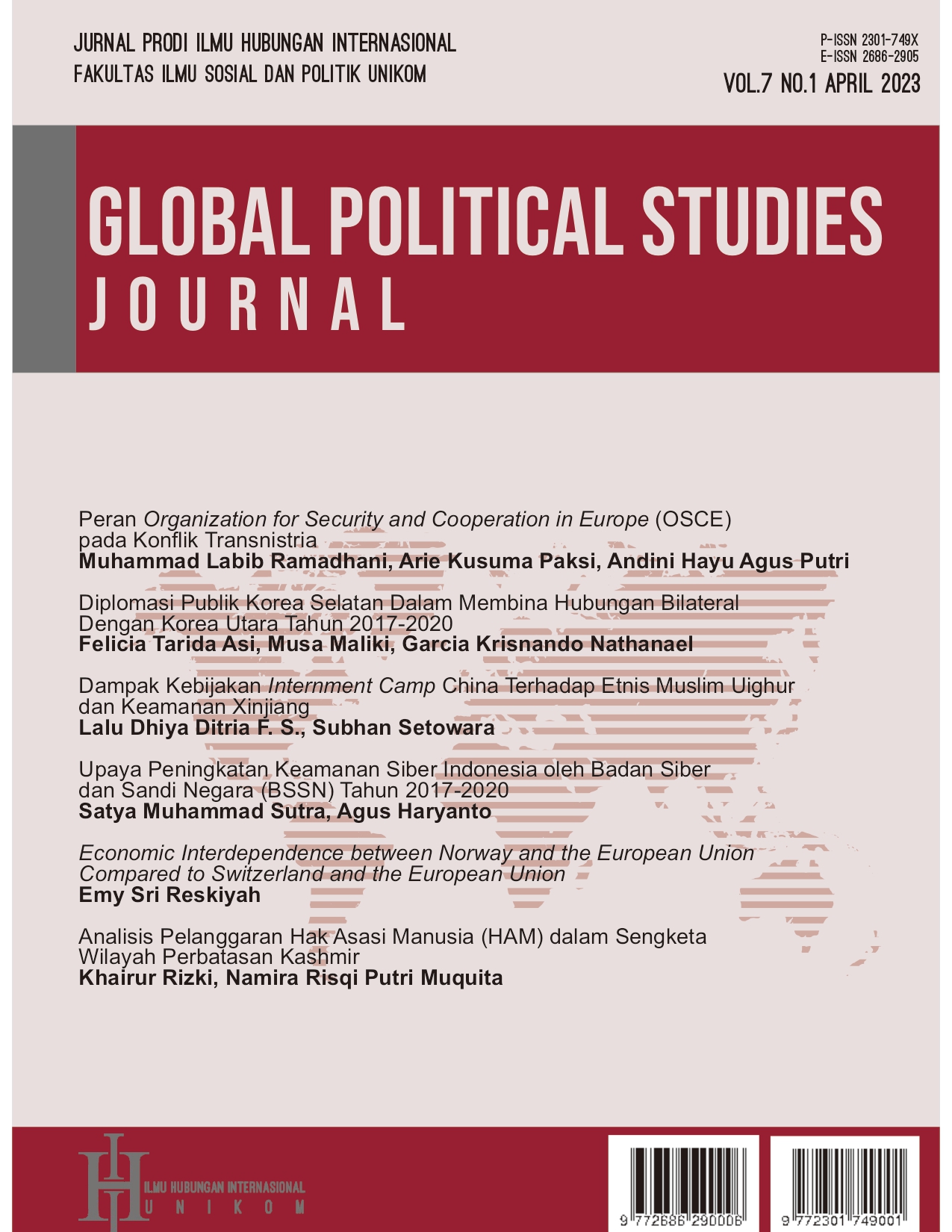Dampak Kebijakan Internment Camp China Terhadap Etnis Muslim Uighur dan Keamanan Xinjiang
DOI:
https://doi.org/10.34010/gpsjournal.v7i1.7403Abstract
Xinjiang is an autonomous region which are prone to terrorism and separatism. The Chinese government issued an internment camp policy as a form of separatism and terrorism prevention and safety for Xinjiang. The purpose of this study was to ascertain the impact of the internment camp policy on Xinjiang security and ethnic Uyghurs. Securitization is used to analyze the emergence of this policy, and one of the factor is the constructed threat created by the Chinese government. Using qualitative and descriptive method, it is known that almost all incidents were motivated by ethnicity and religion which led to the establishment of internment camps in Xinjiang. The policy aims to maintain the security of Xinjiang and also ensure that Uyghurs are not influenced by Islamic values. Another reason is because of the speech act by China about the dangers of terrorism and separatism carried out by Uyghurs. Consequently, China succeed securitizing Xinjiang, resulting Uyghurs detained in internment camps. The impact of the internment camp policy is that Xinjiang security is established, with the consequence of tight surveillance in the Xinjiang region to the extent of violating the privacy rights of the Uyghurs.
Keywords—China, Security, Securitization, Uighurs, Xinjiang









